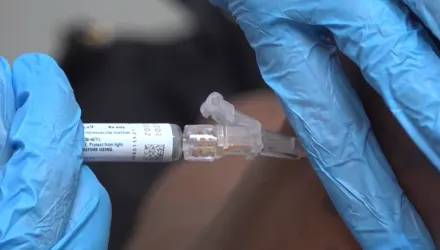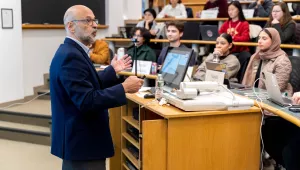Susan M. (Sue) Gordon served as the 5th Principal Deputy Director of National Intelligence from August 2017 to August 2019. A longtime member of the Intelligence Community, she has nearly three decades of intelligence experience. As PDDNI, she managed the Office of the Director of National Intelligence and focused on advancing intelligence integration across the Intelligence Community, expanding outreach and partnerships, and driving innovation across the Community.
Gordon has worked in a variety of leadership roles spanning numerous intelligence organizations and disciplines. Previously she served as Deputy Director of the National Geospatial-Intelligence Agency (NGA), where she drove NGA’s transformation to meet the challenges of a 21st century intelligence agency by championing agile governance, recruitment and retention of a diverse workforce, and expansion of geospatial intelligence services to the open marketplace.
Prior to her assignment with NGA, she served for 27 years at the Central Intelligence Agency (CIA), rising to senior executive positions in each of the Agency’s four directorates: operations, analysis, science and technology, and support. She joined the CIA in 1980 as an analyst in the Office of Scientific and Weapons Research, and went on to serve as the Director of the Office of Advanced Analytic Tools, Director of Special Activities in the Directorate of Science and Technology, Director for Support, and ultimately in concurrent roles as Director of the Information Operations Center and the CIA Director’s senior advisor on cyber. In 1998, she designed and drove the formation of In-Q-Tel, a private, non-profit company whose primary purpose is to deliver innovative technology solutions for the agency and the IC. Ms. Gordon has been recognized for her creative executive leadership through numerous awards, including the Presidential Rank Award at the distinguished level.




